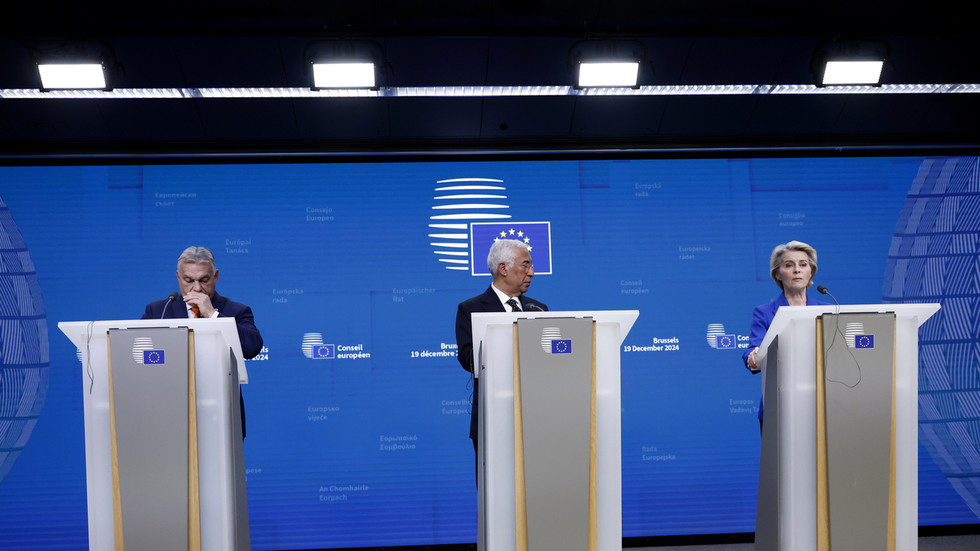At a recent summit in Brussels, European Union leaders struggled to reach consensus on the issue of security guarantees for Ukraine in light of the political landscape reshaped by Donald Trump’s potential return to power as US president. Ukrainian President Volodymyr Zelensky attended with expectations for clarity about EU support for his country, particularly in terms of military assistance. However, reports indicated that the discussions yielded little concrete agreement. The summit highlighted a significant split among EU nations regarding military involvement, particularly concerning the proposal for the deployment of European troops to assist Ukraine. German Chancellor Olaf Scholz firmly rejected detailed discussions about ground troop deployments, warning that such actions could escalate tensions with Russia. This skepticism was echoed by other leaders, notably Polish Prime Minister Donald Tusk, who characterized troop deployment as speculative, suggesting a general reluctance among EU countries to commit formally to military intervention.
As the summit progressed, stark differences in perspectives emerged among EU leaders, with some advocating for a strong commitment to Ukraine while others hesitated. Although there were affirmations of long-term support for Ukraine, the lack of specifics rendered these commitment assurances somewhat hollow. Leaders expressed support for Ukraine “for as long as it takes,” yet failed to articulate clear strategies or tangible actions that would substantiate this pledge. Additionally, EU’s chief diplomat, Kaja Kallas, emphasized the necessity for member states to clarify what security guarantees they could feasibly offer to Ukraine, underscoring a critical gap in the summit’s outcomes. Zelensky’s insistence on NATO membership as the only comprehensive security guarantee pointed to a tension between EU aspirations and the realities of transatlantic alliances, with the US and Germany showing an apparent hesitance to endorse such a framework, further complicated by Hungary’s outright opposition.
The atmosphere surrounding discussions of troop deployment was charged, particularly due to reactions from Russian officials. They have warned that Western boots on the ground in Ukraine would be interpreted as an attempt at occupation, heightening the stakes for European leaders considering such actions. The Kremlin has consistently asserted that it is premature to initiate discussions on peacekeeping measures when dialogues with Ukraine itself are stymied, largely attributed to Zelensky’s administration. Russian President Vladimir Putin, in a recent address, reiterated his willingness to engage in talks but insisted that any discussions must first involve significant concessions from Ukraine, including a rejection of NATO ambitions and recognition of changes to territorial boundaries.
The divide among Western leaders reflects deeper anxieties about military engagement in Ukraine and broader regional stability. The reluctance to commit troops emphasizes countries’ desire to avoid direct confrontation with Russia and the potential for increased conflict resulting from any military involvement. The varied approaches taken by EU leaders reveal a hesitance to take bold actions amid fears of exacerbating tensions. This situation illustrates the complex nature of providing support to Ukraine, where moral imperatives clash with the stark realities of geopolitical calculations and national interests.
As Ukraine continues to navigate its security challenges, the lack of a united front among Western leaders on military support becomes increasingly problematic. The necessity for a cohesive strategy is underscored by the threats posed by Russia. Continued divisions among EU nations could diminish Ukraine’s chances of securing effective assistance, particularly as the country faces ongoing military aggression. Moreover, the ambiguity surrounding security guarantees hampers Ukraine’s ability to strategize and respond to threats effectively, potentially undermining its resilience against external pressure.
Ultimately, the summit revealed the urgency of reassessing the West’s strategic role concerning fundamental security guarantees for Ukraine. As Zelensky has articulated, mere promises from EU countries, devoid of US involvement, are insufficient to ensure Ukraine’s safety amidst ongoing tensions with Russia. Establishing clear, actionable commitments that genuinely enhance Ukraine’s security will require navigating complex political dynamics, fostering unity among Western partners, and addressing the looming influence of Russia’s opposing stance towards NATO and those security guarantees. It remains crucial for European leaders to translate their verbal commitments into meaningful actions that reinforce Ukraine’s sovereignty while managing the precarious relationship with Russia.

